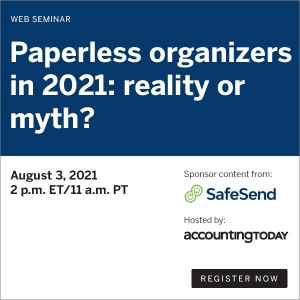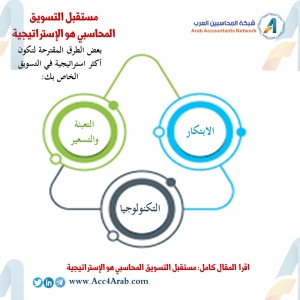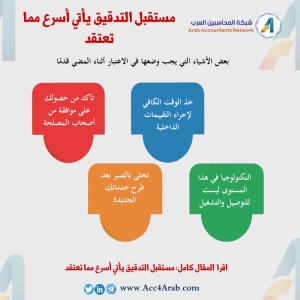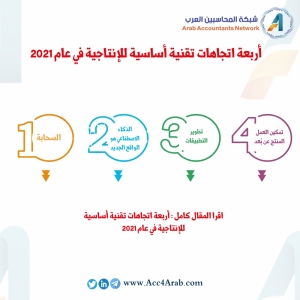عرض العناصر حسب علامة : تكنولوجيا
الإثنين, 02 أغسطس 2021 15:09
ندوة ويب: منظمو بلا أوراق في عام 2021: حقيقة أم أسطورة؟
معلومات إضافية
- البلد عالمي
- نوع الفعالية مجانا
- بداية الفعالية الثلاثاء, 03 أغسطس 2021
- نهاية الفعالية الثلاثاء, 03 أغسطس 2021
- التخصص ضرائب
- مكان الفعالية أونلاين
نشر في
فعاليات مهنية
موسومة تحت
الخميس, 29 يوليو 2021 14:37
ارنست اند يونج EY تقوم بإنشاء حل blockchain للتحدي الضريبي العالمي
قامت EY، جنبًا إلى جنب مع ممثلي الحكومة والصناعة، بإنشاء حل بعيد المدى blockchain لمواجهة التحديات في عملية ضريبة الاستقطاع عبر الحدود.
معلومات إضافية
-
المحتوى بالإنجليزية
EY, together with government and industry representatives, have created a far-reaching blockchain solution to address challenges in the cross-border withholding tax process.
Currently, there are some inefficiencies and complexities with the international withholding tax process in relation to dividend distributions. The goal for TaxGrid is to address these and improve tax compliance to nearly real-time, benefiting investors, financial institutions and tax authorities alike.
“Blockchain technology as a remedy to the withholding tax challenge is no longer just a concept,” said Hank Prybylski, EY global vice chair of transformation, in a statement. “This project shows that in the near future, industry and governments may be able to reconcile legal and technical issues, flex to address disparate demands of taxpayers and tax authorities, and promote digital transformation.”
TaxGrid is also designed to help financial intermediaries coordinate the timely exchange of investor information across a network to meet contractual obligations and, potentially, regulatory requirements, while protecting confidential investor information.
The solution uses blockchain technology to automate, decentralize and share tax and financial information more securely between financial intermediaries and tax authorities by creating a kind of shared record book of all dividend transactions, to help with taxation of dividend income at the source. TaxGrid is built to simplify the process for obtaining the correct tax treatment while reducing governments’ exposure to fraud.
To safeguard data privacy and confidentiality, the TaxGrid uses privacy technology to help protect investors’ sensitive information and commercial confidentiality. Zero-knowledge proof is a key feature of blockchain technology, allowing one party to prove it knows a certain piece of information or value, without revealing the actual information.
TaxGrid was developed in collaboration with government tax authorities, including the United Kingdom's HM Revenue & Customs, the Netherlands Tax Authorities and Norway, along with companies including BNP Paribas Securities Services, Citibank, JP Morgan Securities Services, Northern Trust, APG Asset Management, PGGM Investments, and EY teams ,as well as two invited academic institutions: the Vienna University of Economics and Business, and the Tax Administration Research Center at the University of Exeter in the U.K.
نشر في
موضوعات متنوعة
موسومة تحت
الأحد, 07 مارس 2021 14:21
الواقع الافتراضي الجديد
في عام فرض تغييرات علي جميع العمليات اليومية لشركات المحاسبة تقريبًا، كانت عمليات التوظيف والإعداد من بين أكثر العمليات تأثرًا
معلومات إضافية
-
المحتوى بالإنجليزية
The new virtual reality
By Sean McCabe
March 03, 2021, 9:00 a.m. EST
7 Min Read
Facebook
Twitter
LinkedIn
Email
Show more sharing options
In a year that forced changes in nearly all of accounting firms’ day-to-day operations, hiring and onboarding processes were among the most impacted. The usually personal and hands-on experience of finding, engaging and acclimating new talent was transformed into a virtual one nearly overnight, and as they did with so many other things, firms had to adapt on the fly.
Even in normal times, firms of all sizes often have an urgent need to bring aboard fresh talent, and while the COVID-19 pandemic drastically complicates matters, firms are still seeking out job candidates.
“We are now seeing activity pick up in many areas and have seen demand for accounting professionals relatively consistently even with the uncertainty of the pandemic,” said Michael Steinitz, senior executive director of accounting staffing agency Accountemps. “Many companies were able to quickly and almost seamlessly move operations to remote and keep their accounting and finance teams and functions operating efficiently.”
Managing Your Firm in a Post-COVID World
Think beyond the pandemic with exclusive resources to help you build a thriving virtual practice.
SPONSORED BY INTUIT ACCOUNTANTS
In some ways, the move to remote work may actually have boosted firms’ abilities to reach candidates.
“When the employer stops caring where the staff works, and begins to hire remote, our clients see large upticks in resumes for those remote positions — about eight times more than for location-specific jobs,” said Jeff Phillips, co-founder of recruiting platform Accountingfly.
“So many of our clients started hiring fully remote,” continued Phillips, who is also CEO of accounting and business consulting services provider Padgett Business Services. “Firms that opened up to fully remote work like this had an easier time hiring — they were talking to a larger amount of high-quality applicants and filling open roles faster.”
For some firms, traditional recruiting methods were still able to work to their advantage.
“LinkedIn provided most of our candidates last year,” said Sarah Taylor, recruiting director at Austin, Texas- based Maxwell Locke & Ritter, which ranked No. 2 among midsized firms onAccounting Today’s 2020 list of the Best Firms to Work For. “Forty-one percent of our total hires came from LinkedIn’s sponsored job postings and/or the LinkedIn Recruiter platform. After LinkedIn, our internship program was our next significant source for new hires in 2020. We hired five interns for full-time roles, which is very unusual for our firm’s experienced-hire model. Prior to this year, we had only transitioned a handful of interns to full-time staff immediately after graduation.”
Believe it or not, campus recruiting still brought in candidates for some firms last year — albeit there, too, the effort was much more digital.
“Our recruiting teams had to work extra hard to … be more resourceful in how they worked with potential candidates,” said Katrina Thompson, managing director of human resources at Top 20 Firm Dixon Hughes Goodman. “On the campus recruiting side, we pivoted our efforts to be completely virtual. … We actually experienced higher conversion rates of our summer 2020 interns, and we think that was largely due to how we were able to successfully pivot.”
“We embraced the virtual world, hosting virtual career fairs and events, and utilized innovative platforms to reach candidates,” Thompson continued. “These tactics have been effective for both our campus efforts and experienced hire efforts.”
Welcome aboard (kind of)
Once that new hire has been found, a whole new challenge emerges in introducing and acclimating them to a team that may be spread out over a city, state, or even the whole country. As the vast majority of firms spent 2020 in a work-from-home capacity, how did firm leaders reach out and successfully welcome new employees into the fold?
“One of the biggest challenges we faced across campus and experienced-hire onboarding was how to make new hires feel connected and engaged with the firm and their new colleagues,” said Thompson. “We were able to integrate a mix of games, questions and open discussion to create the level of connection and engagement we were used to in-person.”
“Remote staff can feel isolated, and starting new hires remotely can miss a lot of the socialization that normally occurs,” added Phillips. “We recommend having existing staff reach out to new hires before they start to welcome them to the team … hosting welcome meetings over Zoom to introduce the new hire to the team, and assigning a mentor/buddy to make sure the new hire knows the team and gets what they need.”
It may come as no surprise that the practices that found themselves well-prepared for 2020 are those that had embraced a more tech-forward approach prior to the pandemic.
“We achieved our goal of providing an experience similar to our in-person onboarding experience for new hires with only minor changes,” said Taylor. “Prior to the pandemic, we transitioned to virtual onboarding sessions for our general firm orientation, so we were well-positioned to continue with virtual experienced-hire onboarding. Our technology team quickly pivoted to provide equipment at home and assist with virtual setups. For our campus hires, we created smaller cohorts, so they were all able to feel connected to one another.”
“The virtual environment [further] prompted us to upgrade our onboarding experience,” she added. “We recorded our training sessions and now have an online training library which gives new hires a resource to refer to as they transition to our team.”
Being ahead of the game is ideal, but even if firms have to play catch-up in terms of virtual hiring and onboarding, it might not be as difficult or time-consuming as they may think.
“It’s been incredible how quickly organizations have shifted strategies to account for remote hiring and onboarding,” said Accountemps’ Steinitz. “We’ve seen companies adapt quickly to create playbooks and onboard new hires virtually, and it’s been very successful.”
PhonlamaiPhoto/Getty Images/iStockphoto
Casting a wider net
Firms will also have to reckon with the idea of what a post-pandemic business could and should be. Having had a taste of remote work, some staff may find they like their new work situations better.
Phillips cited a survey by online job platform LiveCareer that found 29 percent of working professionals would quit their jobs if they couldn’t continue to work remotely.
“It’s my opinion that even after we fully recover, high-performing staff will demand to spend more, or all, of their time working from home,” said Phillips. “This change could be a challenge for CPA firms looking to return everyone with the office.”
“Hire virtual staff anywhere [across the country] for permanent and seasonal positions,” Phillips advised. “You will cut your time and cost to fill critical roles in half.”
And despite a wounded economy and troubling employment numbers, hiring is indeed marching on. Steinitz pointed to a recent Robert Half survey of more than 4,000 managers that found that 51 percent of companies still plan to expand their teams in 2021, adding that “how [firms] work may be different, but the volume of work continues.”
“Companies that were previously averse to offering flexibility and remote work for employees will now be open to it permanently,” said Steinitz. “This will be an expectation of workers moving forward, and businesses have shifted mindsets. Organizations are increasingly adopting a remote-first approach, and they’re realizing the value of recruiting outside their city.”
“Employers who accelerate the hiring process — by having fewer rounds of interviews or fewer interviewers, for example — put themselves ahead of the competition,” Steinitz added. “Research compensation trends regularly and be prepared to come to the table with a competitive offer, and increase your odds of attracting top talent by offering fully remote job opportunities and expanding your candidate search geographically.”
What’s next?
While the last year and a half has brought much undeniable hardship, there has been some silver lining in embracing new ways of hiring, including expanded ideas about how firms can hire, who they hire, and where they can hire.
“After the pandemic forced us to shift all interviews to the virtual setting, our team discovered that we can hire fantastic people without meeting them in person, and the virtual interview experience is just as positive, engaging and fun as it is in the office,” said Taylor. “As a firm that engages with significant out-of-area candidates, shifting to virtual interviews has been extremely beneficial; we have improved the candidate experience and made our recruitment processes more time- and cost-efficient.”
“I am 100 percent sure things will permanently change post-pandemic,” said Thompson. “The biggest ‘happy accident’ of this entire pandemic was observing how resilient and resourceful people are. … From a recruiting perspective, we learned how much we could do virtually that we previously did not think was possible; it actually removed some barriers and allowed us to be more places and reach more students. I do believe these will be permanent, and positive, changes.”
“As a profession, we have been talking about ‘the future of work’ for a while,” added Thompson. “That ‘future’ arrived sooner than we expected, due in part to technology advances and the intentionality we had to have with leading people and connecting.”
نشر في
موضوعات متنوعة
موسومة تحت
الإثنين, 01 مارس 2021 14:35
اجعل الأصول غير الملموسة ذات أهمية
معلومات إضافية
-
المحتوى بالإنجليزية
The unbalanced balance sheet: Make intangibles count
By Wes Bricker
February 24, 2021, 10:48 a.m. EST
3 Min Read
Facebook
Twitter
LinkedIn
Email
Show more sharing options
Change and uncertainty are a feature of our world alongside innovations in our fast-changing economy. Investments in new business models and intangible assets — such as brands, technology and customer relationships — are increasingly key to driving value creation as companies research new technologies, cultivate customer relationships, manage their workforce and more. But information related to these important assets is often limited in the financial information reported by companies to stakeholders.
Intangibles are often unique, but that doesn’t mean it’s impossible to integrate intangible assets in reporting efforts. The lens through which we view a company affects how we measure success. A more complete picture contributes to a more unified understanding of value and, when used wisely, can act as a clear signal for action.
So what is the current state of affairs, and what can be done to improve things?
Why accounting lags behind
Accounting standards have historically treated investments in plant and equipment or financial assets very differently than investments in intangibles. As a result, investments in internally generated intangible assets are generally not recognized on balance sheets. This may have been OK at a time when companies created value through the deployment of vast collections of tangible assets, but today, most companies generate much of their value through intangible assets. The absence of most intangibles from financial statements and footnotes can result in a large gap between the book value of the company and its market capitalization, as well as a GAAP earnings metric that does not reflect a complete measure of return on investment.
Approach intangible assets with the rigor of financial reporting
To enhance the relevance of financial reporting, it needs to provide greater insight into intangible investments. Communicating this information as part of the financial reporting process, rather than through other avenues, subjects it to the rigor of the financial reporting ecosystem. Including information on internally generated intangibles, in addition to any acquired intangibles, can help incorporate some measure of intangible assets’ value into a company's financial statements.
Don’t stand still on ESG while things change around you
Investors are increasingly focused on a company’s environmental, social and governance (ESG) strategy, which highlights management’s stewardship of certain intangibles, such as human capital. ESG is a lens to help understand the operational and financial measures of impact and value creation. Operational and financial dimensions are linked — use both perspectives for a more comprehensive view of performance. ESG strategies and high-quality data can help you understand the impact of activities, and trigger decisions, change and financial outcomes. Stakeholders today are seeing a greater connection between ESG strategies and long-term value creation, and rewarding it. Strategies and commitments need milestones and a well-considered selection of high-quality ESG measures to communicate performance. This ESG data often includes operational insights (such as customer retention rates) that translate into value (valuation of customer intangibles).
Standardized disclosure guidelines will help
Transformational changes to financial statements, such as recording and disclosing all or some internally generated intangibles, will help the financial reporting process keep pace with business innovation and remain relevant. Thankfully, FASB and IASB recognize the need for action in this area. FASB is in the early stages of a project, and the IASB is seeking feedback from stakeholders on adding one. In the meantime, it’s critical for boards to engage all stakeholders — from the C-suite to regulators, auditors and users — to gather each of their unique perspectives on how financial reporting can best capture the value created through intangible assets.
Ultimately, ensuring that stakeholders have visibility into management’s stewardship over intangible assets is critical if financial reporting is to remain relevant in an intangible-dominated world. While the best approach may not be one-size-fits-all, any reliable effort to incorporate valuable intangible assets will benefit businesses in the long run.
نشر في
موضوعات متنوعة
الثلاثاء, 24 مايو 2022 07:17
إنفوجرافيك.. قائمة مهامك لنجاح شركتك في 2021
مهما كانت خططك لعام 2020، فمن المحتمل أن تكون قد تعطلت بسبب أحداث العام، لذلك عليك أن تحاول من جديد لعام 2021.
نشر في
إنفوجرافيك
موسومة تحت
الأربعاء, 21 سبتمبر 2022 13:07
نصائح واتجاهات التوظيف لعام 2021
من التوسع المفاجئ في العمل عن بُعد إلى طلبات خدمة العملاء الجديدة، كان لوباء COVID-19 آثار كبيرة على كيفية قيام شركات المحاسبة بأعمالها
معلومات إضافية
-
المحتوى بالإنجليزية
The Future of Finance: Hiring Tips And Trends For 2021
From the sudden expansion in remote working to new client service requests, the COVID-19 pandemic has had significant effects on how CPA firms do business. And while many disruptions might be behind us, the aftershocks will rumble on for some time.
Paul McDonald
Pandemic-driven changes creating benefits
As leaders scrambled to put new processes in place to navigate the effects of COVID-19 on the business, they have made progress in a number of areas. In a survey of senior managers:
41% say leadership communication is better now than it was pre-pandemic
37% think collaboration has improved
31% feel like there’s been substantial innovation over the past few months
Perhaps the most positive development is the way some companies have reimagined the hiring process. Of companies asked about their hiring methods in the age of social distancing:
57% are conducting interviews and onboarding remotely
40% have shortened the end-to-end hiring process
38% have advertised fully remote positions
These changes can help you act quickly and decisively when you’ve identified the right candidate for a position. And the prevalence of remote working means you can look further afield for skilled staff, giving your company access to a deeper pool of talent.
Accounting staff are in demand
One aspect hasn’t changed: It’s still a competitive hiring market for financial talent. You’ll have to fight hard for the best performers because many companies are ramping up recruitment. For example:
● Public accountants are a lifeline for small and midsize businesses right now. They’re helping clients navigate unpredictable cashflows, as well as shifting compliance requirements.
● Corporate accountants are tasked with finding new efficiencies that will keep businesses viable during financial turbulence.
● Government accounting departments have been forced to scale up quickly to address a raft of unprecedented financial aid packages.
● Financial services institutions are helping clients secure credit and reorganize liabilities during tough times.
● Healthcare companies need staff to deal with billing, reconciliations and new payment processes.
Retention still a concern
Skilled professionals are making career moves, even during a pandemic, and retention remains paramount. Unemployment is higher, but not that high for those with specialized skill sets, so in-demand accountants could be tempted to join another company. For businesses with currently lean staff levels, even the loss of a single skilled professional could be a serious blow.
In a separate Robert Half survey highlighted in the 2021 Salary Guide, more than eight in 10 managers said they are worried about losing valued employees. Here are their primary concerns:
· 55% are worried about losing staff over morale-related issues
· 50% have employees who are facing burnout from heavy workloads
· 37% imposed salary cuts with no prospect of raises in the immediate future
Salaries remain stable
Median salaries are fairly stable across the board, though (as ever) the best candidates in the hottest sectors will be looking to negotiate a bump in pay. Use the Robert Half salary calculator to ensure you’re paying at least market value for your region.
Remote work is the new normal
The pandemic sparked a mass exodus from corporate to home offices. This was jarring for many workers, but research in the guide suggests that few employees are in a hurry to get back to company HQ. Almost three in four workers say they want to keep working from home after the pandemic.
When hiring, you’ll need to balance the desire of highly skilled candidates to work from home with the needs of the organization. Fortunately, you’ll be in a much better position to make these calls than you were in late March, since your firm should now have more data and anecdotal evidence to draw on regarding the productivity and morale of remote workers across your teams.
Tech skills are essential …
If you’re looking to add to your remote teams, new recruits should be tech savvy and capable of learning new systems with little or no in-person training. They need to be able to work with cloud-based systems, understand IT security protocols and be comfortable using digital communication tools. Home-based workers also need to have the basic IT skills to solve common computer and networking issues, as they won’t have hands-on support from a helpdesk technician.
However, while it’s easy to be dazzled by the new and exciting world of remote working, keep in mind that collaborative platforms like Slack and Microsoft Teams are much easier to master than specialized accounting software. Microsoft Excel, QuickBooks (for smaller businesses), enterprise resource planning (ERP) systems and similar applications remain the gold standards, and you should assess candidates’ resumes accordingly.
… but so are soft skills
When is an Excel wizard with a fully equipped home office wrong for your organization? Perhaps when their track record or interview performance suggest that they struggle to collaborate with colleagues, or that they find it difficult to adapt to changing goals and circumstances. In these challenging times, soft skills such as critical thinking, resilience and flexibility can be every bit as important as technical expertise.
The need for these attributes is not driven just by the pandemic. As new technology such as AI becomes an integral part of finance jobs, you’ll place a greater emphasis on the kind of human values that can’t be replaced by an algorithm.
Flexible staffing is the future
Flexible staffing — an adjustable mix of full-time and interim professionals — is a strategy many companies have long been using to temporarily access specialized expertise and scale their teams as needed without overburdening full-time staff. It is tailor made for the current situation. Asked why they worked with interim professionals, more than a third of senior managers said it was to remain agile during the economic turmoil.
Predicting the future has never been harder. But if 2020 has taught us anything, it’s that uncertain times reward companies that are nimble and innovative.
نشر في
موضوعات متنوعة
الثلاثاء, 24 مايو 2022 07:19
إنفوجرافيك.. مستقبل التسويق المحاسبي هو الإستراتيجية
نشر في
إنفوجرافيك
موسومة تحت
الثلاثاء, 24 مايو 2022 07:20
إنفوجرافيك.. مستقبل التدقيق يأتي أسرع مما تعتقد
نشر في
إنفوجرافيك
موسومة تحت
الأربعاء, 28 سبتمبر 2022 12:03
قمة الإتحاد الدولي للمحاسبين IFAC: الاتجاهات العالمية التي تحول التعلم والتطوير
معلومات إضافية
-
المحتوى بالإنجليزية
Building on the Education Summit’s Success to Transform Learning and Development
GABRIELLA KUSZ MBA, MPP, CPA, CGMA | JANUARY 20, 2021
IFAC accountancy education summit, The Anticipatory Accountant: Global Trends Transforming Learning and Development, was a great success—reaching over 1,600 accountancy professionals in business, government, and academia. The Summit’s message, guided by world-renowned futurist Daniel Burrus and expanded upon by Business Learning Institute CEO Tom Hood, was one of shifting the future view of the accountancy profession from reacting to reflecting on key trends and anticipating how best to position the industry for future success.
The summit explored important key trends in TECHNOLOGY, ENVIRONMENT, and SOCIETY, in addition to providing a platform for stimulating anticipatory thinking and re-imagining the nature of the profession and learning and development. While we can’t see exactly what the future of the accountancy profession may hold, the summit helped IFAC and professionals around the world identify key global trends, understand their influence on the next decade, and enhance their ability to transition ahead of time.
Using these key insights, the accountancy profession can move away from the constant and exhausting cycle of reacting to anticipating the future and gently evolving to ensure the longer-term relevance and value of our industry, planet and people.
The Anticipatory Accountant summit is not an end in and of itself. Rather, it is a starting point for multiple working groups that will examine the key themes, discussions and outcomes of the summit to shape forthcoming learning and development thinking, guidance and resources for our profession.
A recording of the entire summit is available on IFAC’s YouTube channel.
Don’t have time to watch the full-length version of the event? Watch the event in easy to access ~5-minute video shorts!
نشر في
محاسبة و مراجعة
الثلاثاء, 24 مايو 2022 07:22
إنفوجرافيك.. أربعة اتجاهات تقنية أساسية للإنتاجية في عام 2021
نشر في
إنفوجرافيك
موسومة تحت










